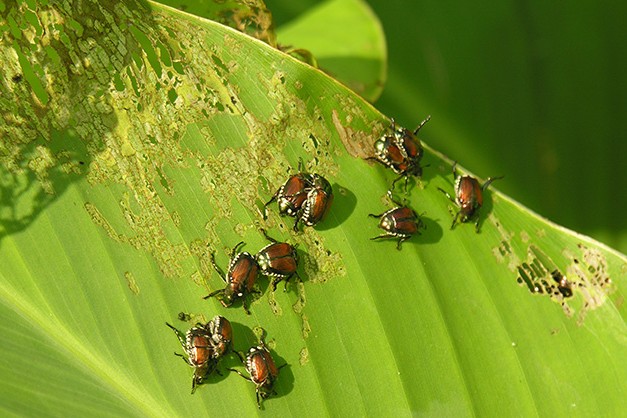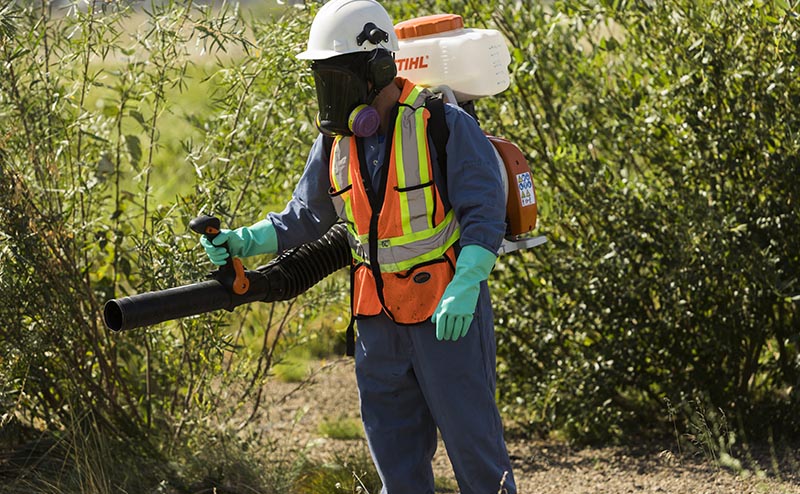Natural Pest Elimination: Seven Strategies For Managing Pests Away Without Harmful Pesticides
Natural Pest Elimination: Seven Strategies For Managing Pests Away Without Harmful Pesticides
Blog Article
Do you find yourself interested in content concerning Control Household Pests Without Scary Poisons?

No house owner desires to share space with a pest. Substantial pest problems typically relate to the use of harmful chemicals. Below are seven guaranteed means to control bugs so you do not have to resort to toxic chemicals.
Use Do It Yourself Pesticides
You can DIY pesticides with no chemicals. Soap and also vinegar get rid of dirt mites. Likewise, lavender increased, and also neem essential oils fend off ticks. Because the poignant odor drives them crazy, Pepper mint oil likewise functions wonders on a whole lot of bugs. Take into consideration making home made concoctions to maintain bugs away.
Dispose of Food Scraps Properly
The primary factor insects like your house are all the food! Thus, you have to guarantee that none are available for their usage. Dispose of food scraps in paper bags and placed them in a sealed rubber container. See to it that crumbs are vacuumed, and kitchen counters are wiped down. Do not fail to remember to cleanse your cooktop and stove, too. In addition to that, don't fail to remember to pack all leftovers in appropriate containers and also don't leave pet food existing around.
Seal Access Details
If you desire parasites to stay out, seal all feasible entry points. Bear in mind, a tiny computer mouse can squeeze its body in a hole as huge as a container. Since crawlers and ants can go through there, pay interest to little splits. You can use a caulking gun to repair any kind of bothersome areas. Pay interest to door as well as home window voids. You can make use of weather strips to ensure your home is incredibly secured.
Ensure Good Air Blood Circulation
Notably, some parasites like dirt termites love moist and also damp environments. If you desire them gone, enable fresh air and sunshine to flow with your house.
Establish a Regular Cleaning Set Up
Pests usually get into areas that are not clean. If you want to make sure your house is pest-free, stick to a routine cleaning schedule.
Attempt an Ultrasonic Plug
Keep them near entry factors to ward off frustrating bugs. These ingenious gadgets emit audio waves that just pest ears can hear.
Look For Eco-Friendly Pest Control
If you have done everything feasible, however insects still come to your property, you have to call a credible pest control business. If you want secure as well as environmentally audio services, you have to try to find a company with "environment-friendly" accreditations. This implies they make use of organic chemicals to remove pest infestations to ensure the security of your family, personal belongings, and also animals.
No home owner wants to share room with a pest. Large pest infestations normally equate to the usage of toxic chemicals. Right here are seven guaranteed means to manage parasites so you don't have to resort to toxic chemicals.
If you desire pests to stay out, secure off all possible access points. If you have done every little thing possible, however pests still come to your residential property, you must call a credible pest control company.
Effective pest control without the harmful chemicals
If you have grown plants for food or aesthetics, you have probably experienced the frustration of losing some of your crops to insects and other pests. That is just a part of gardening, although if you grow crops year-round, you’ve probably realized that the upside of winter gardening is that you don’t have to spend much time fighting herbivores, since the cold weather kills them or drives them into a dormant stage. Animals are a different story, however, and you may find that hungry squirrels, deer, raccoons, or other critters are helping themselves to your plants even through the cold season.
To get rid of insect herbivores, many gardeners resort to using insecticide-pesticides. (Pesticides consist of a number of substances, including weed killers like RoundUp, insect-killing chemicals, and molluscucides, or “snail bait.”) In fact, most commercial (and many non-commercial) plants are grown with the aid of pesticides. While this may seem like a solution to the problem of insect herbivores ruining all your hard work, it has many downsides that have implications for your plants’ health, the health of the environment, and your own as well.
What effects do pesticides have on plants, the environment, and human health?
Regular use of pesticide undermines plant health because insects develop greater resistance to those pesticides, which means that you have to use more pesticide. That increased usage can stunt the plant’s growth, interfering with photosynthesis and killing of beneficial microorganisms in the soil that help the plant to complete the chemical processes involved in delivering nutrients to its roots and leaves. Pesticides also contaminate the soil, water, and air harming wildlife and other, non-target plant species.
Are organic pesticides better?
Some people believe that using organic (i.e. plant- and mineral-based) pesticides is better for human and environmental health than synthetic pesticides. This is a common misconception, and one that the organic food industry is not too eager to correct. In fact, while most people believe that using pesticides that are approved for organic farming are less harmful than using synthetic pesticides, there is not much evidence to support this. However, the main reason for the lack of evidence is that there just haven’t been enough studies done to show the effects of regularly using organic pesticides on the health of plants and animals, the environment, and humans.
The studies that have emerged in recent years suggest some disturbing facts: one such study,[i] published in the journal PloS One in 2010, noted that the natural pesticides 1) mineral oil and 2) beauveria bassiana (a fungus), both USDA-approved for organic farming, were not only less effective in controlling soybean aphids than their synthetic counterparts, they killed off beneficial insects that kept the aphid populations down and thus had a negative environmental impact. Other natural pesticides, including insecticidal soap, pyrethrins, sabadilla, diatomaceous earth, horticultural oil, spinosad, and copper sulfate (a fungicide), are all toxic to bees. Rotenone, also approved for organic farming, is toxic to fish. Bacillus thuringiensis (Bt), a soil-dwelling bacterium and the most widely used pesticide in organic farming, is harmful to butterflies, moths, flies, and beetles.
https://www.greenandprosperous.com/blog/effective-pest-control-without-the-harmful-c

Do you enjoy more info about Control Household Pests Without Scary Poisons? Create feedback down the page. We would be delighted to know your responses about this post. In hopes that you come back again before long. You should take a moment to promote this article if you appreciated it. Bless you for your time. Don't forget to come visit our blog back soon.
Book Maintenance Report this page